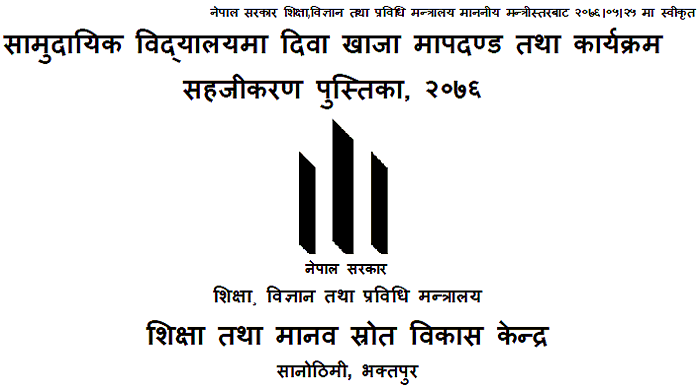
For the children of the school, the Day Meal is considered important in the areas of health, education, social justice, and equality. The opportunity to eat a nutritious meal at a children's school is the essence of studies that will improve health and develop the humanitarian capacity of the party. Nutritional lamps in school will not cause problems like malnutrition and undernourishment in children. Achievements mentioned in health indicators are achieved at the national level. It increases the attendance of children in the school and reduces the dropout rate. Numerous studies and research have shown that the student's educational achievement can be encouraging. The Diva Banquet program will result in the economic progress mentioned in the future.
A study in Nepal concluded that an investment of Rs.1 in a nutritious Day Meal would result in a financial gain of 5.2 times its life. The lunch at the school is important to all children because all children are fed together and of the same quality. Diva Khawaja program also addresses the mandatory and free basic education of the constitution of Nepal, the right of food sovereignty to all citizens and the spirit and spirit of Nepal being a socialist-oriented state. Lunch is an important part of the mission of achieving goals and fulfillment of goals such as poverty alleviation of sustainable development, eradication of hunger and ensuring access to quality education for all.
Therefore, policy documents related to education and health in Nepal such as the Education Act, School Sector Development Program, the cornerstone of the Fifth Plan, the Integrated Health Strategy have given high importance to this subject. It has also been prominently presented in the report of the last Higher Education Commission and in the policy and program and budget talk of Fiscal Year 2076/77 of the Government of Nepal. To achieve the stated commitments or objectives, it has been presented with high importance on the Diva Banquet Program in both formats based on the food supplies and cash flows implemented so far and in the Commission's report and in the Fiscal Year 2076/77 policy and programs and budget speeches of the Government of Nepal.
So far, these efforts need to be addressed more systematically. Also, the two types of cash-based distribution and cash-based practices currently operating in Nepal have to be addressed as mutual learning. Addressing these issues, this facilitating booklet has been prepared to make this program more organized by the Government of Nepal.
Since the main responsible body of the Diwali meal program is the local level and the state government also has a supporting role in it, the criteria and procedures have been prepared with the intention of assisting and facilitating the local government, the state government and the concerned bodies to implement and manage the program. While these criteria and procedures have also set the national standard of diva banquet, information about diva banquet, issues and challenges, importance and necessity, criteria implementation method and framework, responsibilities and monitoring and facilitation of various agencies and officials and committees are presented. It is believed to work in the health and agriculture sectors, especially at the local level and even at Grassroot levels.





